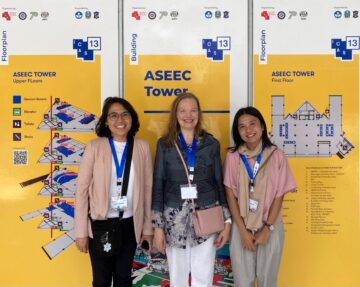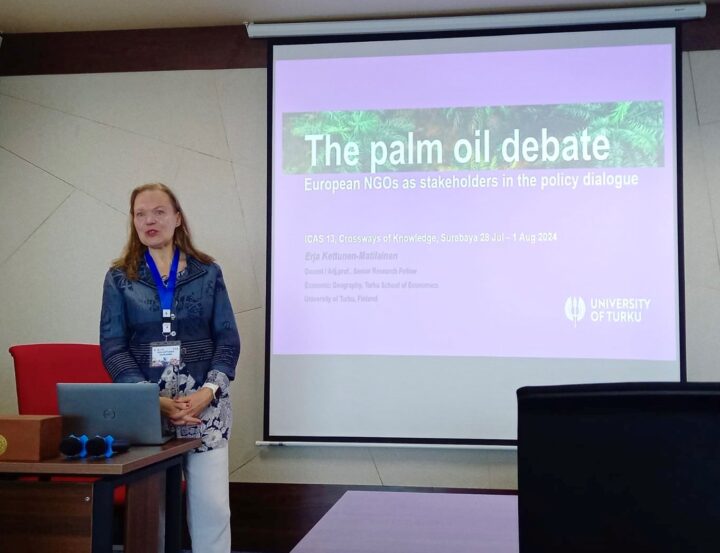KETTUNEN-MATILAINEN: The Palm Oil Debate
This blog post was previously published at the SPOC website.
Since last decade, public debate in Europe has raised concerns about the effects of oil palm monoculture farming in Indonesia on deforestation, biodiversity loss, and social problems that arise from violations on the environment, human rights and indigenous land rights. As most of the world’s palm oil is produced in Indonesia where oil palm cultivation provides a livelihood for 16 million smallholders, workers and their families, the issue is highly contested. The critique has focused on the perceived problems, most notably the dangers to local communities and global climate crisis. This has led to the European Union (EU) decision to restrict palm oil imports for biofuels, and concurrently, Indonesia filing a trade dispute at the World Trade Organization, where consultations are still ongoing. The dispute has affected Indonesia-EU relations, leading to a slow progress in negotiations launched in 2016 for the Comprehensive Economic Partnership Agreement (CEPA), a prospective Indonesia-EU free trade agreement. The more recent debate centers on the European Union Deforestation Regulation (EUDR) and is held up by different stakeholders, including the EU bodies and European non-governmental organizations (NGO).
In our research project Good and bad palm oil, we aim to combine the perspectives of different stakeholders in Indonesia and Europe to understand how the trade dispute and global geopolitics are changing the opinions, context, and discourse on palm oil. While existing research concerns the impact of oil palm expansion on local communities in Indonesia and stakeholder relations at the local and provincial level, our purpose is to expand the context and look at the opinions, debates and narratives on palm oil at multiple levels. Therefore, a multi-scalar approach offers a way to examine the positions of the various stakeholders ranging from the grassroots to local, provincial, national, and international levels, in the discourse. The debate is understood as a process of bargaining on the different aspects and impacts of oil palm farming and our aim is to identify the “good and bad” aspects of palm oil in the arguments and to examine power relations amongst the stakeholders.
We recently had the opportunity to introduce the project at the 13th International Convention of Asia Scholars at the Universitas Airlangga, Surabaya ICAS 13 – 2024. Drawing on information from stakeholder interviews, publications and online news archives, our tentative findings indicate the diverse arguments on the impacts of oil palm farming. Recent opinions voiced by European NGOs focus on pushing strongly for the EU deforestation regulation, whereas a number of international NGOs push for the improvement of palm oil sustainability standards. Since these are expected to have significant impacts of Indonesian as well as Malaysian exports, the issue is currently being negotiated in a joint task force by Indonesia, Malaysia and the EU, with the aim of reaching a solution acceptable to all.
ERJA KETTUNEN-MATILAINEN
Senior Research Fellow and Docent of Economic Geography at Turku School of Economics, University of Turku, Finland
This blog post is based on the palm oil research project by research team Erja Kettunen-Matilainen, Ayu Pratiwi and Ratih Adiputri, led at the University of Turku, Finland, and funded by Kone Foundation (2023-2027). Read more here: https://sites.utu.fi/palmoil/

Read also the previous blog post by Kettunen-Matilainen: The multifaceted question of palm oil

